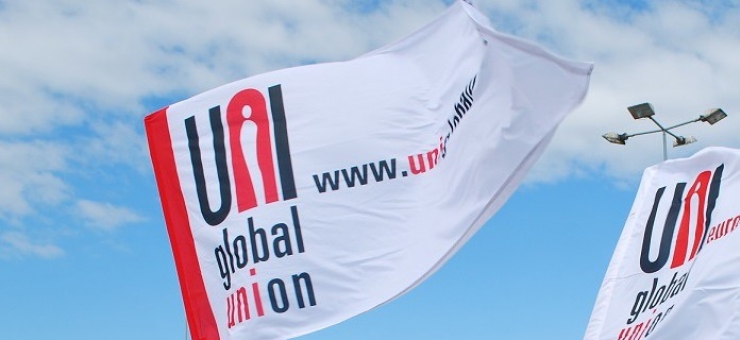News
2017 - the year of the pay rise

European trade unions have agreed to make 2017 the year of pay rise for European workers.
“It’s time for our recovery” said ETUC General Secretary Luca Visentini. “Profits and executive pay have long recovered from the crisis, but white and blue collar workers’ wages have still have not got back to pre-crisis levels. One in three workers is struggling to make ends meet.”
Oliver Roethig, Regional Secretary of UNI Europa, commented: ‘European services workers are the majority of the European work force and work in sectors that constitute the backbone of economic and social life in Europe. They deserve a pay rise and we will work through 2017 to achieve that. One of our main focus points to raise wages is increasing collective bargaining throughout Europe – that is why UNI Europa will work with colleagues at the national and company level to mobilise for higher wages.’ The European Trade Union Confederation, meeting in its Executive Committee with national trade union leaders, agreed that
- They would press for a pay rise for European workers throughout 2017;
- A pay rise is fully justified to tackle rising inequality and in-work poverty, and to generate growth and recovery for all;
- Giving workers more money to spend would lift the whole economy far more effectively than current measures such as tax cuts and public spending cuts, and would give a boost to business as well as workers.
“We will be looking for pay rises wherever possible” said ETUC Confederal Secretary Esther Lynch. “The most effective means of achieving a pay rise is through collective bargaining between trade unions and employers, but we will also be looking at minimum wages where collective bargaining does not exist.” “We will be making the case for pay rises to employers and to policy-makers.”
The ETUC argues that the EU and national Governments should encourage collectively bargained wage increases as a way to drive growth, and do more to promote negotiations between trade unions and employers. The ETUC will work with European sectoral trade unions and national unions to examine wage discrepancies across Europe including wages falling behind productivity, companies that keep an excessively high share of profits instead of sharing it with workers through higher wages, companies that have an excessive gap between the pay of those at the top and the lower paid workers, unfair wage differences in wages between sectors in different countries, and countries with particularly low minimum wages or unfair exemptions to the minimum wage.
“All workers deserve a pay rise” said Esther Lynch, “and some deserve a bigger pay rise to narrower the gap between the better paid and the low paid.”
“Workers patience is wearing thin” said Luca Visentini “Europe needs a recovery for all, not just for the already rich.”

